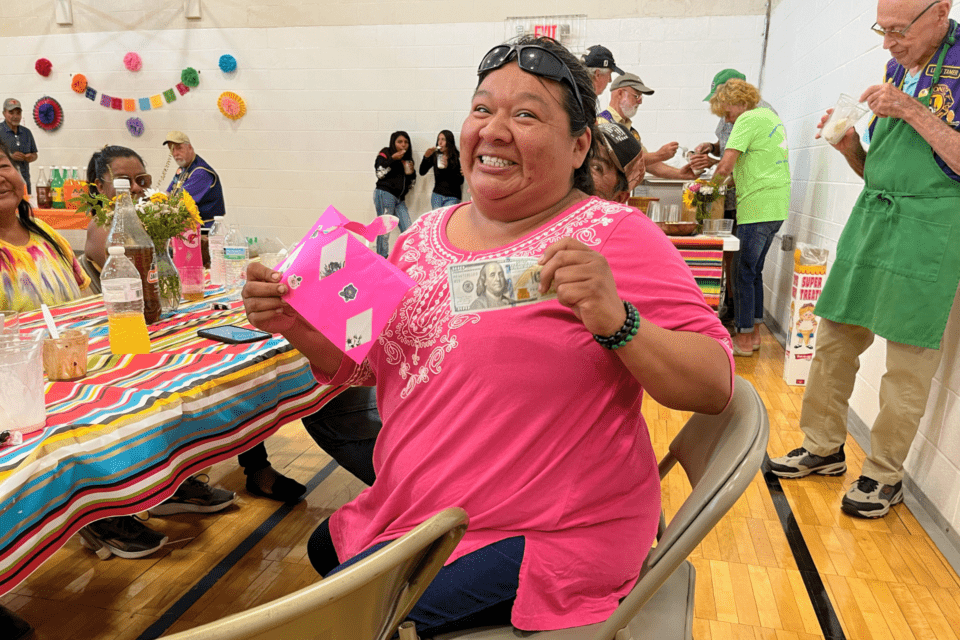Arcadia UMC helps to organize an annual appreciation dinner for migrant farmworkers in rural Manistee County to honor their contributions to the community.
JAMES DEATON
Content Editor
Arcadia is a sleepy lakeside village on Michigan’s famous M-22, about halfway between Manistee and Frankfort. The town was founded by Lutheran Henry Starke, who owned a lumber company and donated land for a Lutheran church to be built in 1887. In 1902, a group of Methodists purchased land from Starke’s company to build a church. That historic building still stands.
Although Arcadia UMC has less than 20 members, it is financially stable. Ruth Kladder, a full-time member for about six years, is proud of her United Methodist church. “We are totally self-sustaining,” she noted, “and we’re able to pay our ministry shares, so we’re doing really well with that handful of people.”
And the congregation isn’t afraid to tackle God-sized dreams. The Farmworker Appreciation Dinner for migrant farmworkers, held on August 25, 2024, is a prime example. In its second year, the dinner aimed to show appreciation and respect for the migrant workers’ contributions and to address some of their needs.
Ruth was invited to serve as the United Methodist representative on the committee that planned the event. Rick Jones, a member of Trinity Lutheran Church, hatched this idea and partnered with Arcadia UMC, the Arcadia Lions Club, the Pleasant Valley Community Center, and other local supporters to launch the first event last year.
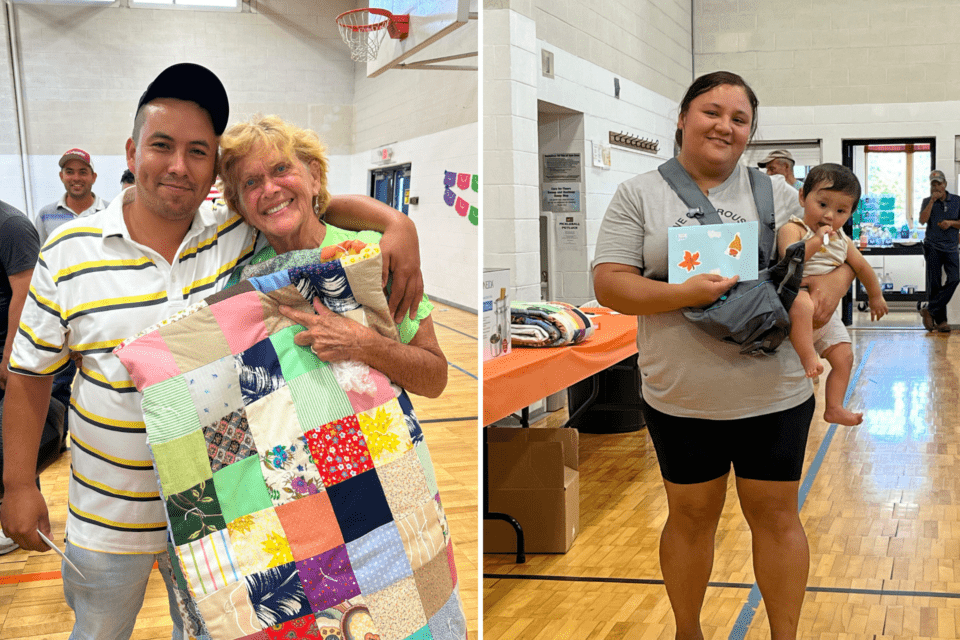
“Rick is 90 years old,” said Ruth, “and he’s just a fireball! He came up with the idea of honoring the farmworkers in our community who serve us in this way and get very little for it. And so, this event was a way to celebrate them and also fulfill some of their needs by providing free household items, winter clothes, diapers, shoes, and even bikes for the kids.”
The Farmworker Appreciation Dinner was held at the Pleasant Valley Community Center, a former elementary school that has been turned into a vibrant community center. The event drew some 200 people, with 255 plates of food being served. Some of the meals were taken back to those living in the migrant camps who couldn’t attend. “With all the dinners they took home,” said Ruth, “there were a lot more people touched.”
Church and community members donated cash and door prizes, with 176 raffle tickets being passed out for over $4,000 in cash and prizes.
“We also had this room full of donated items they could take for free,” explained Ruth, “but we made sure we asked them what kinds of things they needed before the call for donations went out to the community.” Ruth said the event planners worked closely with an agency liaison who visited the migrant camps on the farms and talked to the farmworkers to find out what items they needed to make life here more like home.
Ruth added, “One of our priorities was to be able to get hats, boots, gloves, and sweatshirts for them to wear in the fall because they need to keep warm to be able to work outside, especially for apple harvest, which extends into November.”
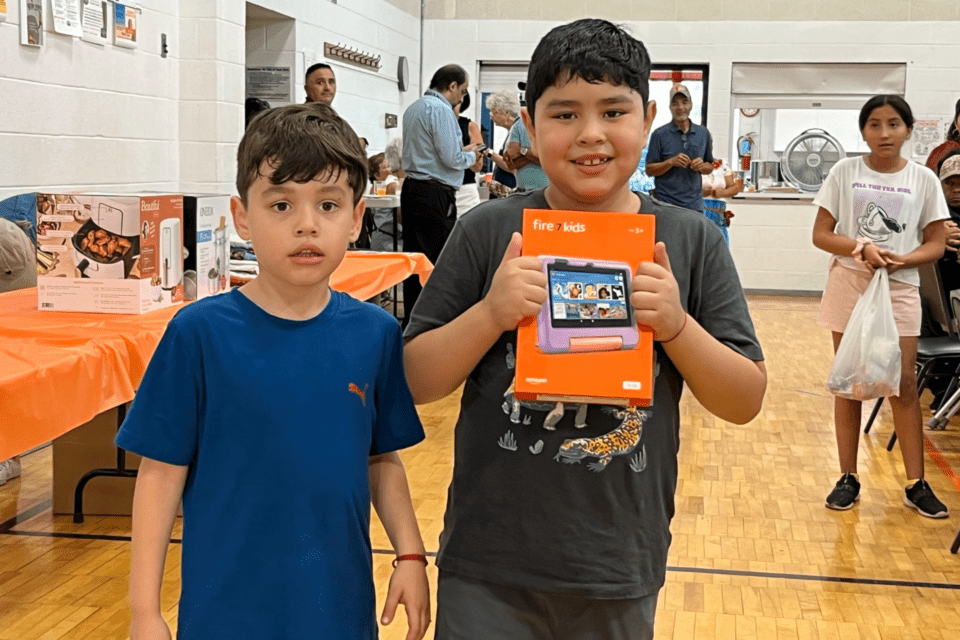
The farmworkers who attended also had an opportunity to meet with various state and county health agencies and human services, have their children’s vision checked, and pick up backpacks of school supplies for their children. “So, the event,” noted Ruth, “really kind of touched all parts of their lives.”
Children who attended were treated with an appearance by Bluey, a popular animated character, who gave each child a book, and the chance to strike a candy-filled piñata. The children also got to climb on a fire truck. Wes Hull, a member of Arcadia UMC and the local fire chief, coordinated a truck from the Arcadia Township Fire Department for the event.
“This was a really big God thing,” expressed Ruth. “It was out of our pure desire to serve these people in God’s name and bless them. So that’s what made it unique. There were no strings attached. And I believe they genuinely appreciated it. The smiles, the words of gratitude, and the ways they noticed how we treated them as equal members of this community.”
Ruth noted that the farmworkers lost potential income this year due to the devastation of the sweet cherry harvest caused by the fickle spring weather. As part of this event, the churches and other sponsors gave $3,000 in cash door prizes to help compensate for their losses.
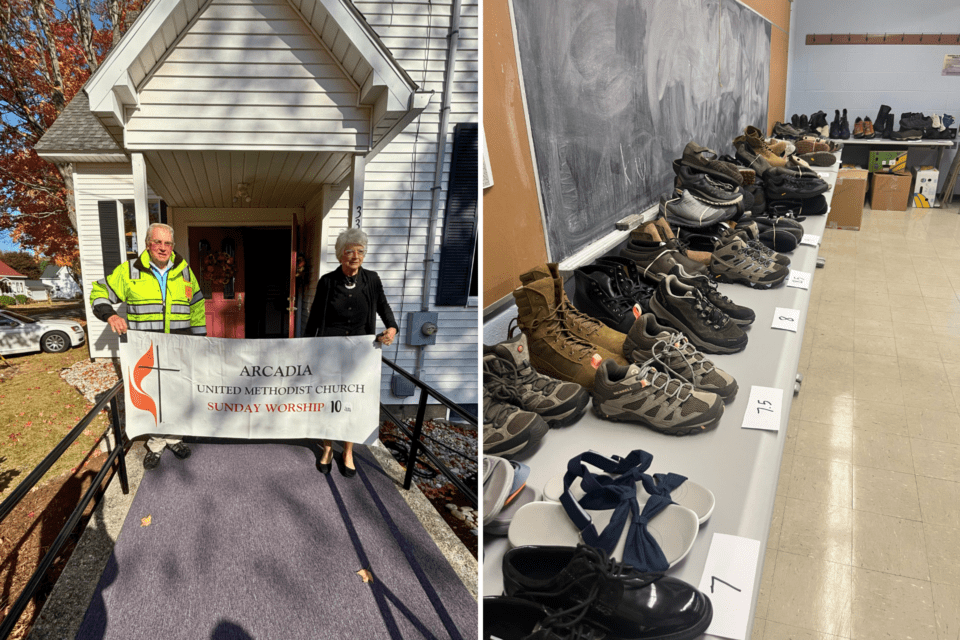
Agriculture is big business in Michigan, contributing more than $104.7 billion to the state’s economy each year. Cherries, apples, blueberries, and other fruit grow perfectly along Michigan’s western shore, but the state is also a top producer of asparagus, black and navy beans, pickling cucumbers, potatoes processed for potato chips, and squash.
Michigan’s farm owners have come to rely on migrant workers, many of them seasonal, who come to the United States to work under the H-2A visa program. This federal program helps U.S. farmers fill employment gaps by hiring workers from other countries. According to a recent U.S. Department of Labor news report, “Michigan is among the top 10 states with employers that regularly hire workers under this program. The state has about 870 licensed housing sites that accommodate about 23,000 temporary workers.”
Over 500 migrant workers in Benzie and Manistee Counties alone help harvest local crops worth more than $20 million annually. Most of these farmworkers come from Spanish-speaking countries such as Mexico.
These essential agricultural employees buoy Michigan’s economy and are vital to communities like Arcadia. However, challenges have arisen as these farmworkers face less-than-ideal working and living conditions. Many return home during the winter, but some stay in Michigan, depending on the terms of their work visas and whether the farms need assistance.
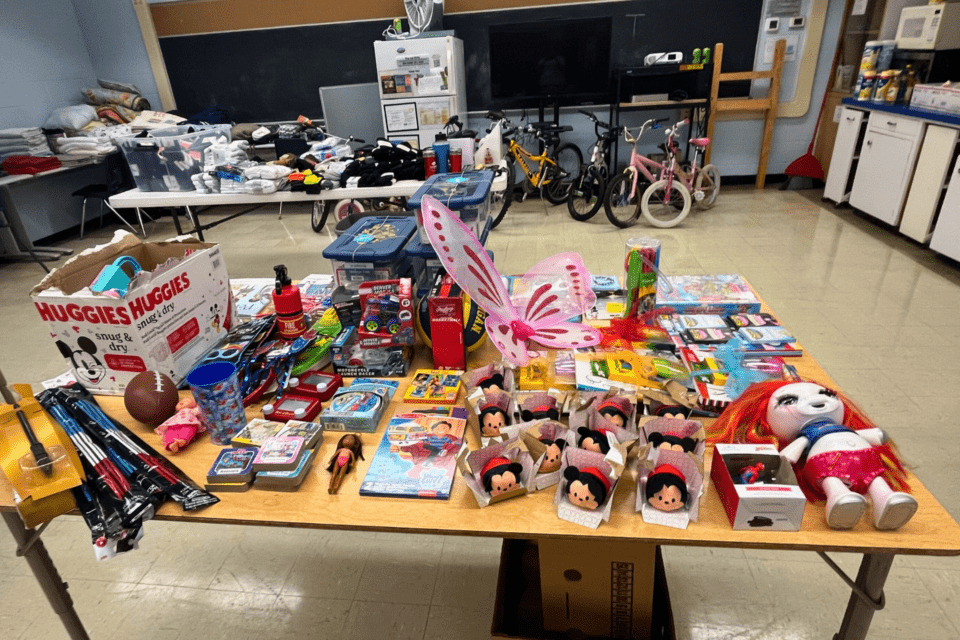
Ruth said Arcadia UMC plans to continue ministering to the individuals and families that stay in Michigan year-round with Thanksgiving and Christmas support.
“It’s a blessing to be a part of this,” admitted Ruth, “to know this is where you belong. It brings you so much joy to see those people being blessed. So, it’s a mutual thing. It goes both ways.”
Ruth expressed gratitude: “It bonds you with others in the community and people you don’t usually rub shoulders with. And it increases your world, it increases your vision, and it increases your faith that God is working. It just makes everything so much bigger. It does that for our church, too. We’re a small church, so to be able to be a part of this is huge.”
Last Updated on November 7, 2024

